Teachable Moments….What would you do if you came across wild sloths?
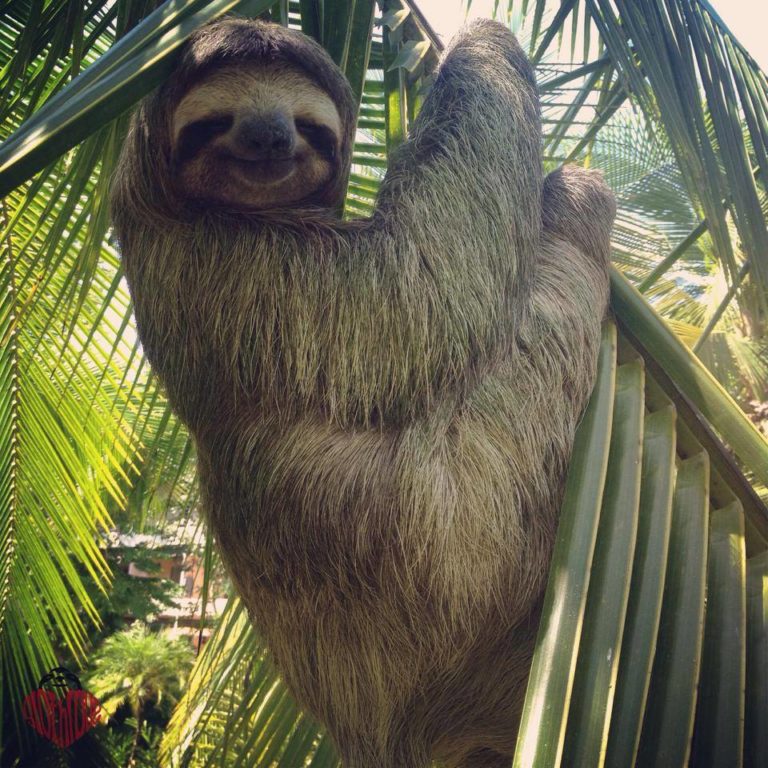
Last week, I experienced a similar teachable moment when we received a phone call about a wild sloth in distress. A group of tourists staying in nearby Manuel Antonio had been approached by a neighbor’s gardener holding an adult three-toed sloth and he was asking if they wanted to take a picture with the sloth. Luckily, these tourists knew immediately that touching and holding wild animals is a bad idea and instead of saying yes, they said “No!” and also asked him to please put the wild sloth back in a tree. They kept an eye on the sloth for a while and started to get worried that his behavior wasn’t quite normal and that maybe he was sick. He also had a very strange “shaved part” on his back and looked like he was injured.
Once we received this call, we immediately jumped into action and went to see how we could help. Upon arrival the sloth seemed pretty normal…curled up in a ball sleeping in the top of a palm tree…but obviously I needed to get closer in order to assess his health status.
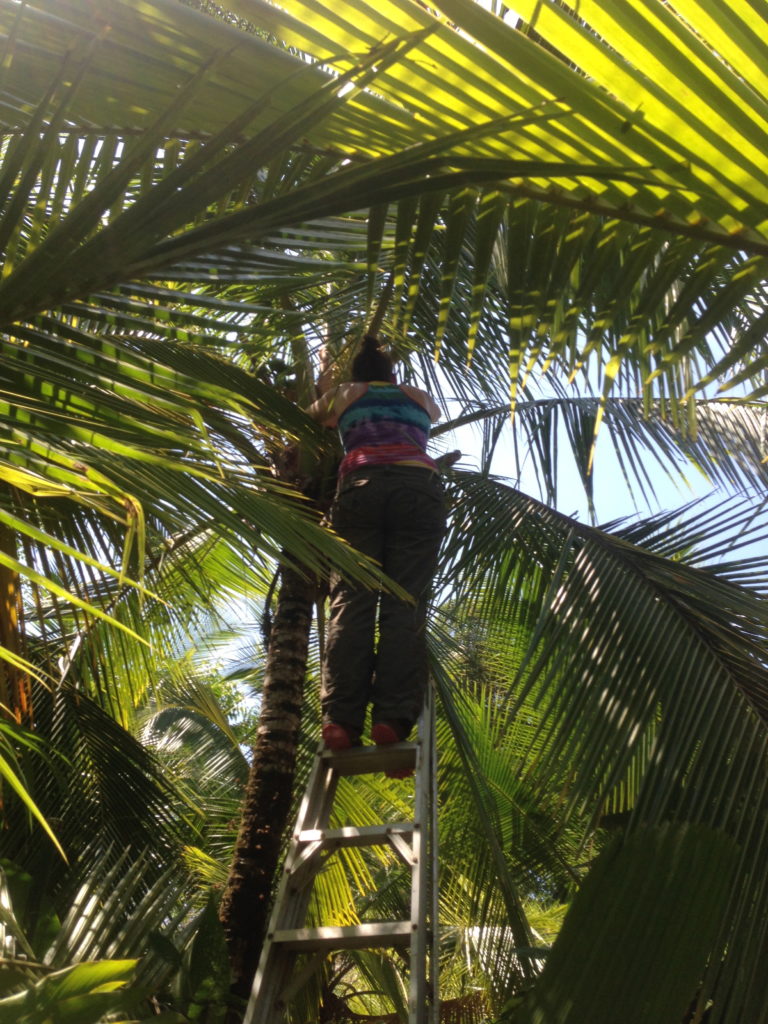
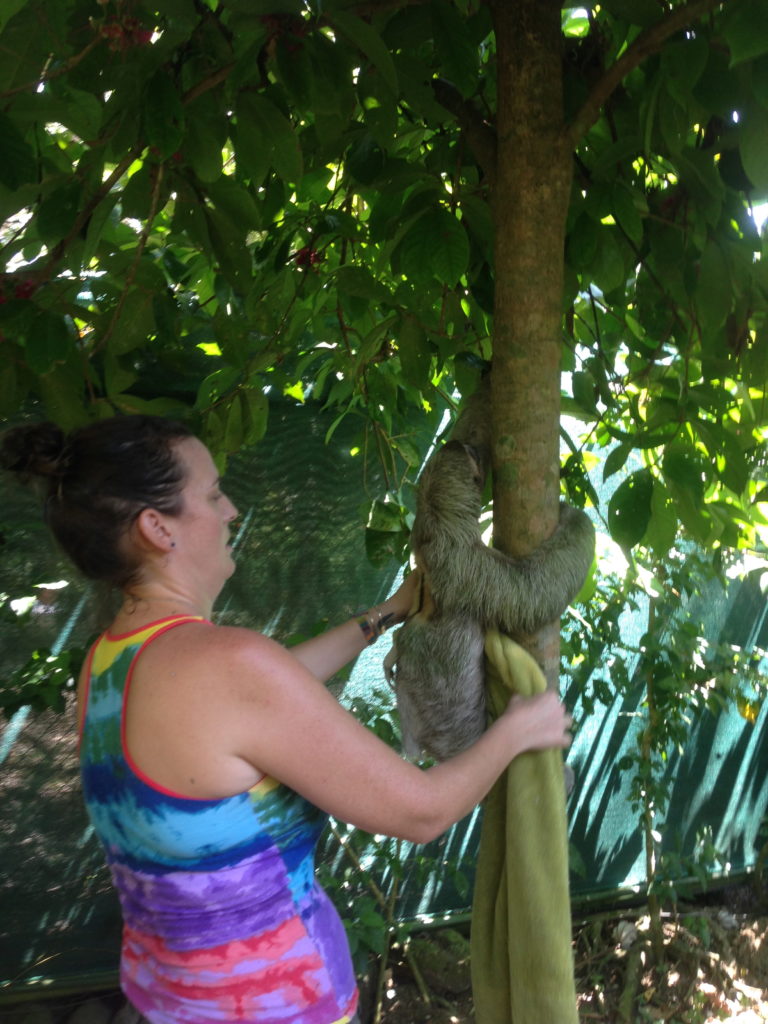
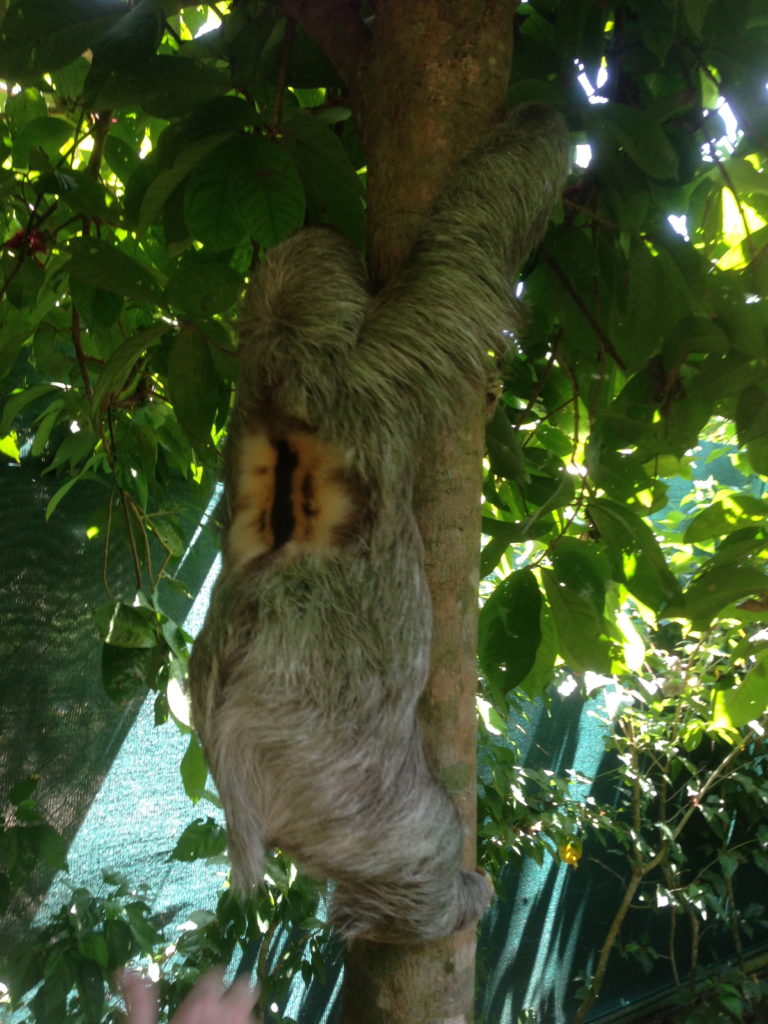









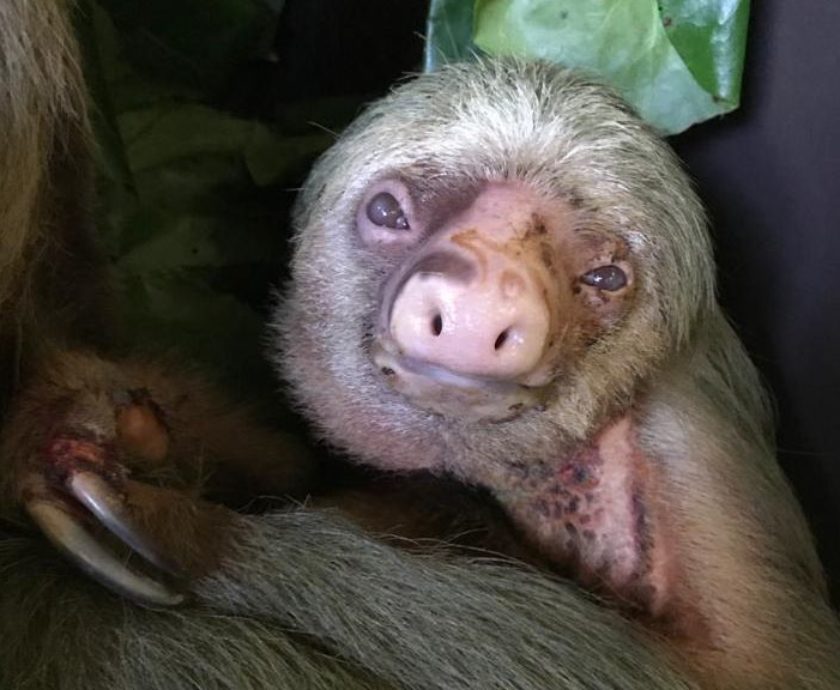
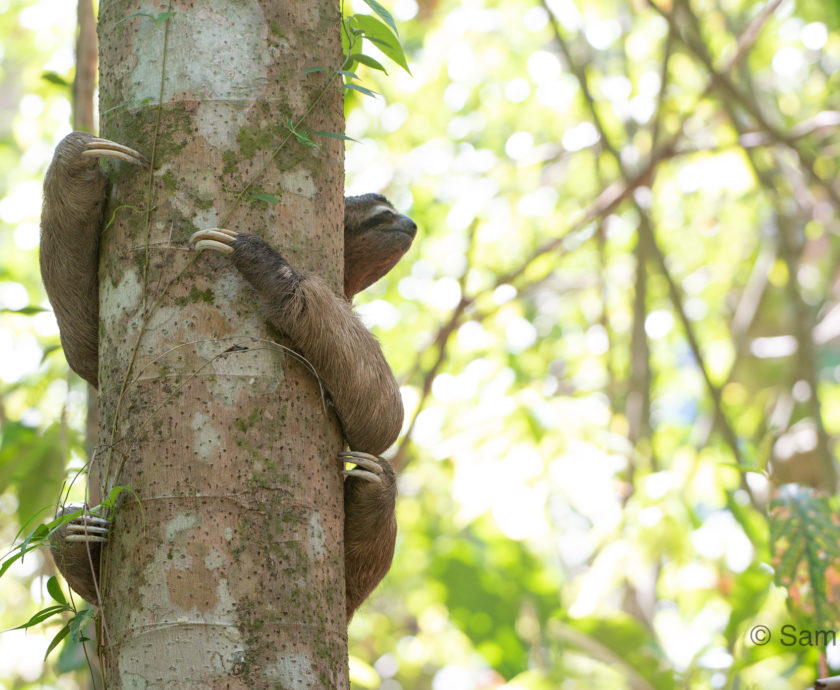
For whatever reason my wife and I were curious about sloths and if they are dangerous. Thank you for your online story of reuniting the baby sloth with its mother, and teaching us to leave them alone. As far as being dangerous, we feel that you educated us about who’s dangerous to whom?
thank you i’m doing a 7th grade biology project, this REALLY helped
is there anywhere in costa rica that I can hold a sloth?? im going to costa rica for my 60th birthday and my main reason is to hold a sloth………..I LOVE them!!!
The Sloth Institute makes every effort to educate the public about the ethical practices of tourism and enjoying wildlife such as sloths. The country of Costa Rica and The Sloth Institute do not condone the practice of paying or visiting establishments that offer to hold, feed, or take photos with sloths. The sloths you see at these tourist attractions have been kidnapped from the wild and treated poorly. The businesses are unethical. If you truly love sloths, we urge you to please follow ethical tourism.
What is considered “ethical tourism” as you mentioned when discussing ones love of sloths?
Ethical tourism means to travel with consideration for how your actions will affect the environment, wildlife, and local community.
In this example, the person posting is saying that now you know that handling a sloth is bad for the sloth’s health (and algae, roaches, moths or others it carries), you should not pick one up. If you truly love them, you should show that love by respecting their health and well-being. Sloths are blind and thrive best when in familiar places with familiar scents, so this shock of you grabbing them (even gently) is really stressful.
Sometimes people don’t understand the consequences of their actions, and innocently make the wrong choices. Once we know better, we need to do better.